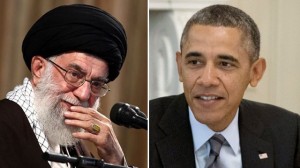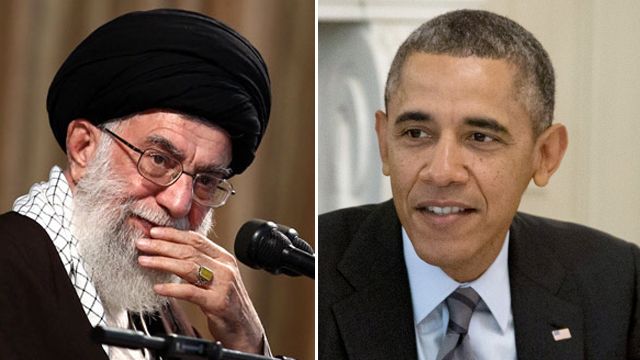by Lawrence A. Franklin
 The Obama Administration’s efforts to negotiate a verifiable agreement with Iran which would limit the Islamic Republic’s capability to develop a nuclear weapon — will fail—because of Iran’s domestic political dynamics.
The Obama Administration’s efforts to negotiate a verifiable agreement with Iran which would limit the Islamic Republic’s capability to develop a nuclear weapon — will fail—because of Iran’s domestic political dynamics.
A decade of efforts by European and American diplomats, combined with effective sanctions as well as Iran’s disingenuous public diplomacy strategy, did succeed in bringing Tehran to the negotiating table. However, despite some support for an agreement within President Rouhani’s circles, regime hardliners have begun to signal that they will not tolerate an agreement with the West.
Key military leaders and radical revolutionary clerics acknowledge an agreement would end sanctions. Yet, Iran’s national security interests and the clerics’ desire to maintain their stranglehold on power trump any economic benefits.
In the near future, Rouhani will be instructed to inform the Iranian negotiating team that the talking game is over. Rouhani, like former President Khatami, has little real power to effect substantive change in relations with the West. Moreover, anti-Americanism is one of the few fig leaves that legitimizes continued military-theocratic rule.
The IRGC (Islamic Revolution Guard Corps) is the keeper of the flame, controlling the Islamic Republic’s strategic weapons programs. These senior military leaders and their clerical supporters are not prepared to negotiate away Iran’s multidimensional nuclear infrastructure. Moreover, Iran’s drive to produce a nuclear weapon is inextricably linked to its medium- and international-range ballistic missile system programs designed to carry nuclear warheads.
Iran is determined to become the regional hegemon in the Persian Gulf. The regime views itself as the vanguard of the Shia rise to power — at the expense of Saudi Arabia, the Sunni standard-bearer. Furthermore, Tehran believes that a nuclear-capable Iran will diminish the influence of pro-Western conservative Arab states. Iran also hopes to win over the Arab street to its side, just as Tehran’s support for the anti-Israeli Hezbollah and Hamas helps burnish the Islamic Republic’s anti-Western and revolutionary credentials.
The U.S. Congressional decision to delay the passage of any legislation that could threaten additional sanctions against Iran does remove a convenient cover for Iran to disengage from the nuclear talks. Presumably, they will blame the U.S. for the failure anyway. Consequently, there will be no Iran-related legacy boost for the Obama White House. Tehran has played President Obama just as they played President Carter, only releasing hostages as President Reagan was inaugurated.
Finally, Iran believes it is winning the Shia-Sunni regional war. The Islamic Republic is confident that its security forces have dismantled any serious anti-regime networks and intimidated surviving pockets of resistance. The regime also believes that the majority of Iranians do not want to see the country “cave” to the United States. They are also confident the American people would not support military action against them.
Dr. Lawrence A. Franklin, Former Iran Desk Officer for the Secretary of Defense and Air Force Reserve Military Attaché at the U.S. Embassy in Israel.
